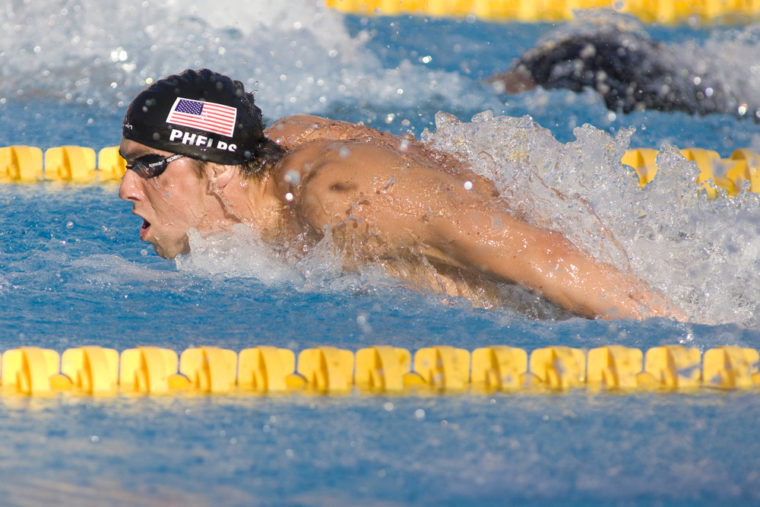If anyone has earned a solid retirement, it’s Michael Phelps. A quick summary of his career: The most decorated Olympic athlete of all time with 28 medals, 23 of them gold. He swam in 5 Olympic games, finished with a medal in 93% of his Olympic races, has more medals than 108 countries, and broke 39 world records during his career. Oh, and a few years ago he launched the Michael Phelps Foundation to promote the sport of swimming and healthful living.

That’s a pretty good resume for a young man still in his 30’s. He could of stayed retired and spent the rest of his life doing appearances and events for the foundation, giving the occasional interview or media appearance, a keynote speech, maybe an endorsement here or there, and generally enjoying each day.
But he didn’t get as far as he has come by being willing to settle, by lying back to reap the rewards of his earlier efforts. The passion, the intensity, the drive that led him to his first victory are still as much a part of him as they ever were. And whether he adds to his store of world records and Olympic medals or not, he’s fulfilling his purpose with hard work, dedication and endurance.
So where does that leave the rest of us?
At 28, or 48, or 68, how can we stay connected (or reconnect) with the things we set out to do?
Is there a professional goal you still want to meet?
A new challenge that would benefit you and your organization?
There can be a variety of factors in keeping yourself relevant, but they all hinge on one key requirement. Don’t live off of past success.
When Phelps announced his return to swimming, a lot of voices were saying, “he is to old, ancient for a swimmer!” And not long ago that was true. But as Matt Barbini, a consultant to the US swim team, discovered a few years ago, the average age of Olympic medalists in swimming has been steadily rising. For men, it’s gone from 21.1 in 1984 to 26.2 in 2012; for women it’s gone from 18.3 to 21.4.
In that light, what Phelps is doing doesn’t seem so farfetched. Technology, medicine and science are all advancing at an incredible speed. Injuries that were once catastrophic can now be healed – or, better yet, prevented. Better understanding in fields like nutrition and physiology help us stay younger longer. And those things are true for all of us, not just Olympians.
In business, too, it’s possible to build a long and great career that takes advantage of experience and innovation. What outdated limits do you need to let go of? Whether it’s obsolete technical knowledge, management style, or just a mental image of what someone your age should be doing, you have the power to break free if you choose to. Take a class or a workshop to open your mind to new possibilities. Develop a mentoring relationship with a younger colleague whose energy and ideas you admire. Connect with older people in your industry who have stayed current. Follow Phelps’ example: commit yourself, train hard, and give it nothing less than your best.
If you were successful in the past but have eased out of the game, either abruptly or by slowing down a little bit more every day, ask yourself why. If it’s intentional, something you really want for yourself, fine. Enjoy your life and don’t look back. But if it’s a case of feeling that you have to move out of the way, that you can’t run with your younger colleagues, that there’s nothing left for you to contribute, then maybe it’s time to reevaluate, create a plan, and get back in the pool. The water’s fine.
{Photo Credit: Mitch Gunn / Shutterstock.com}
